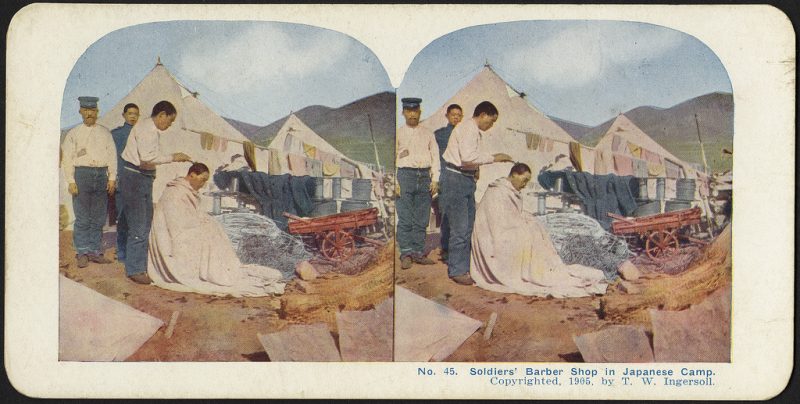The Russo-Japanese War (8 February 1904 – 5 September 1905) was fought between the Russian Empire and the Empire of Japan over their rival imperial ambitions in Manchuria and Korea. These color stereograph prints from 1905 from the early American photo publisher Truman Ward Ingersoll offers a rear glimpse into the war from the Japanese army’s perspective.
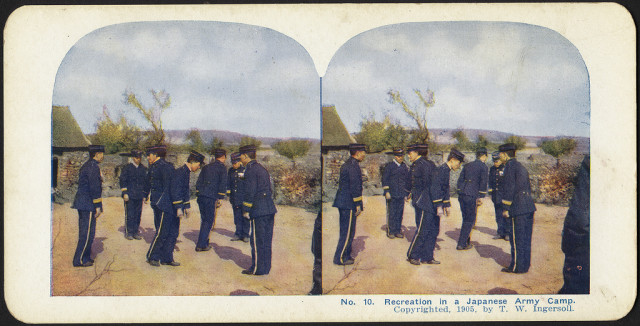
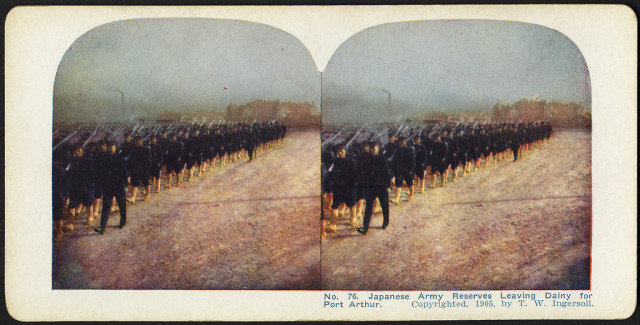
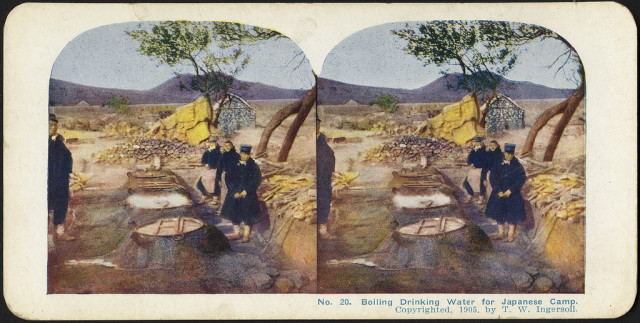
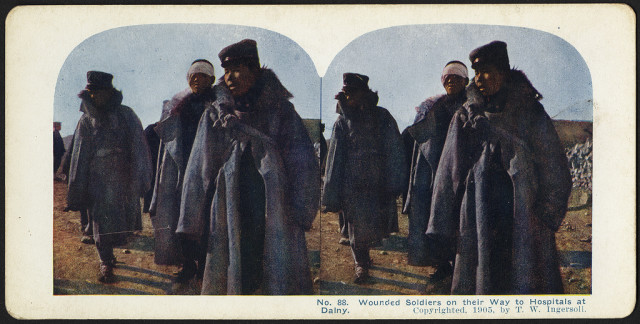
Russia sought a warm-water port on the Pacific Ocean for their navy and for maritime trade. Vladivostok was operational only during the summer, whereas Port Arthur, a naval base in Liaodong Province leased to Russia by China, was operational all year. Since the end of the First Sino-Japanese War in 1895, negotiations between Russia and Japan proved intractable. Russia had demonstrated an expansionist policy in the far-east from the reign of Ivan the Terrible in the 16th century. Because of the threat of Russian expansion, Japan offered to recognize Russian dominance in Manchuria in exchange for recognition of Korea as being within the Japanese sphere of influence. Russia refused and demanded Korea north of the 39th parallel, this was to be a neutral buffer zone between Russia and Japan. The Japanese government perceived a Russian threat to its strategic interests and chose to go to war. After negotiations broke down in 1904, the Japanese Navy opened hostilities by attacking the Russian Eastern Fleet at Port Arthur in a surprise attack.
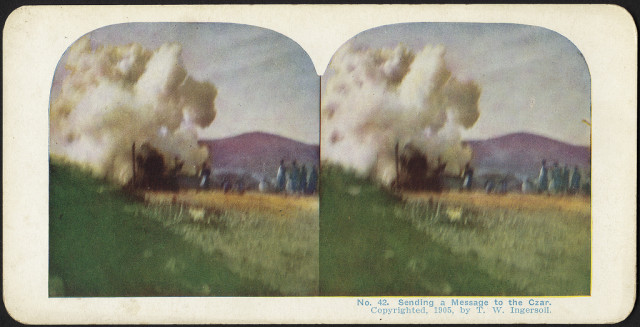
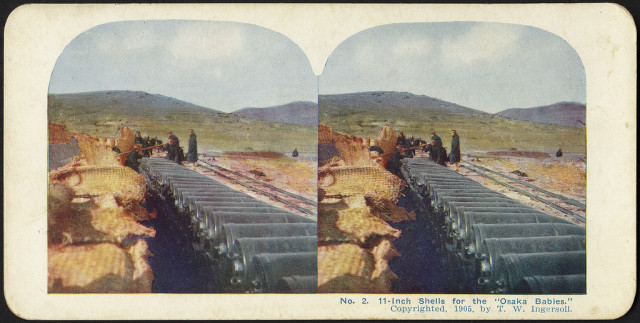
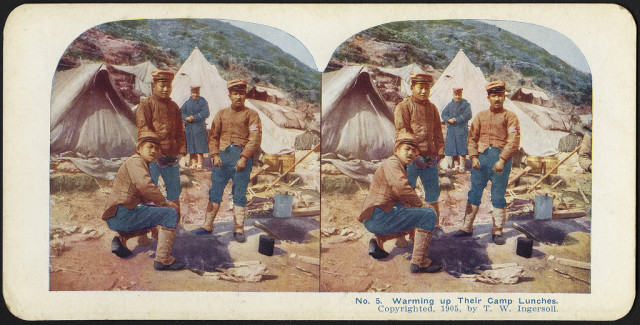
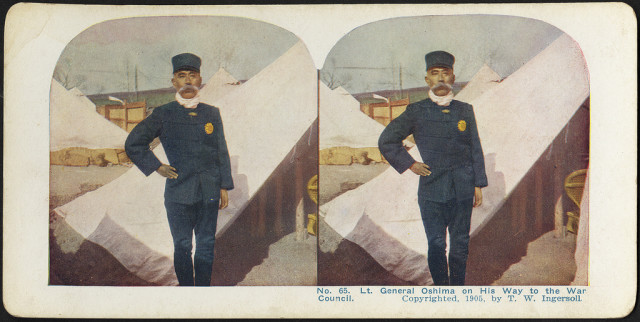
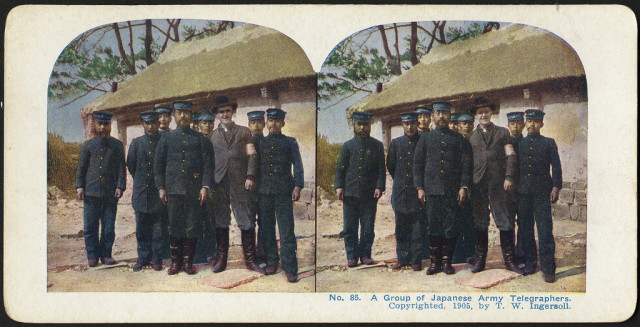
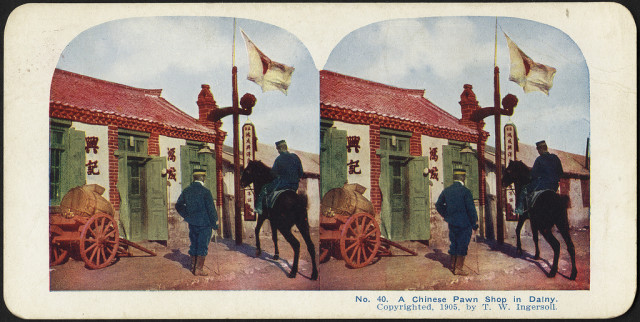
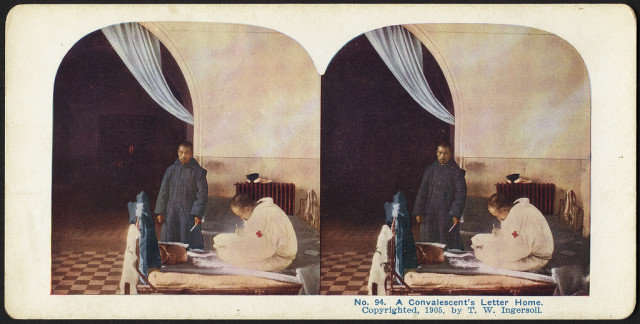
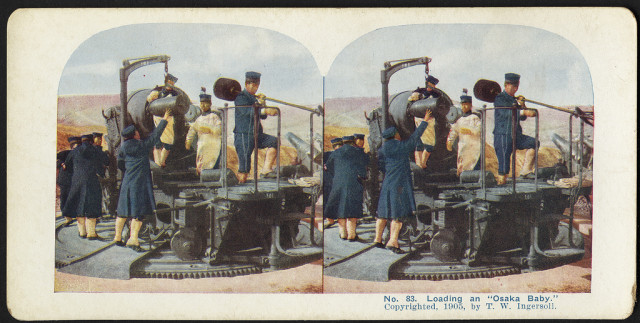
Russia suffered numerous defeats by Japan, but Tsar Nicholas II was convinced that Russia would win and chose to remain engaged in the war; at first, to await the outcomes of certain naval battles, and later to preserve the dignity of Russia by averting a “humiliating peace”. The war concluded with the Treaty of Portsmouth, mediated by US President Theodore Roosevelt. The complete victory of the Japanese military surprised world observers. The consequences transformed the balance of power in East Asia, resulting in a reassessment of Japan’s recent entry onto the world stage. Scholars continue to debate the historical significance of the war.
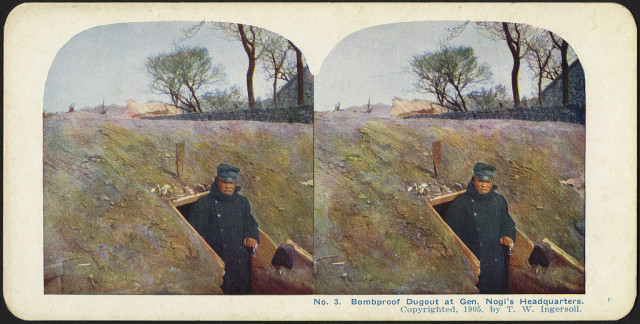
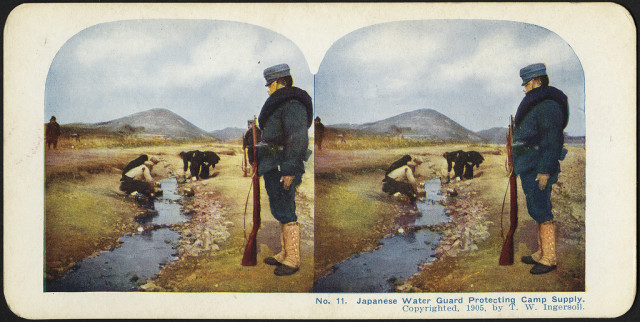
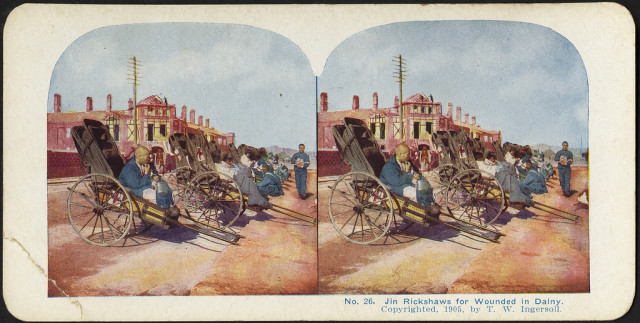
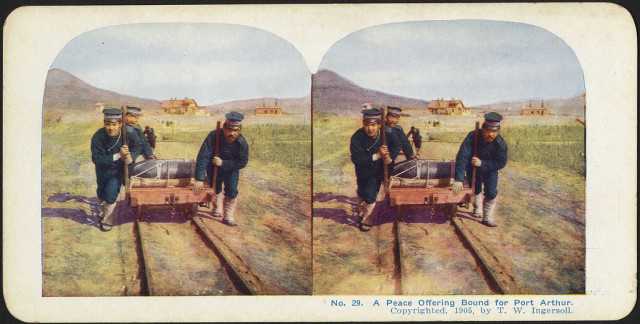
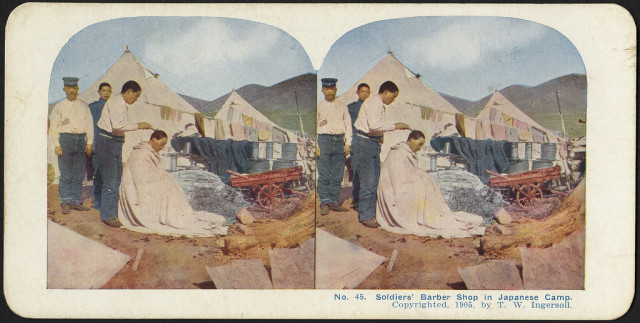
In 1853 Commodore Perry of the US Navy arrived in Japan and brought an end to Japan’s policy of self-isolation by forcing the Tokugawa shogunate to sign the Convention of Kanagawa the following year. This encounter with a modern Western power served to portray the West as having a confrontational and imperialist political agenda, which Japan continued to hold through World War II. Japan sought to maintain its autonomy and resisted colonialism by Western nations. The Meiji Restoration in 1868 served as an early Japanese response to the challenges of the modern world.
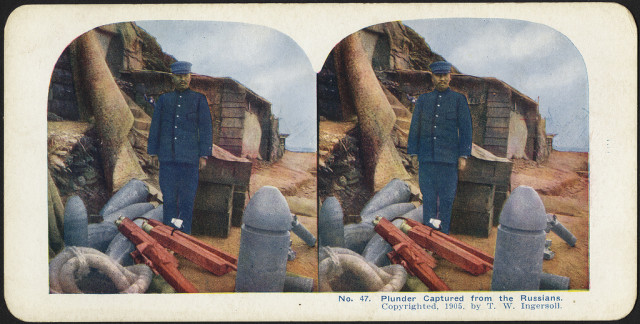
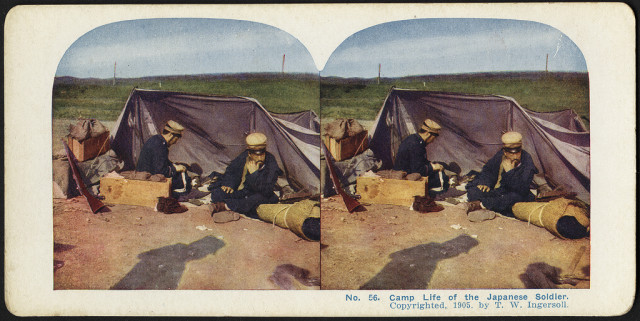
After the Meiji Restoration in 1868, the Meiji government endeavored to assimilate Western ideas, technological advances and customs. By the late 19th century, Japan had transformed itself into a modernized industrial state. The Japanese wanted to preserve their sovereignty and be recognized as equal with the Western powers.
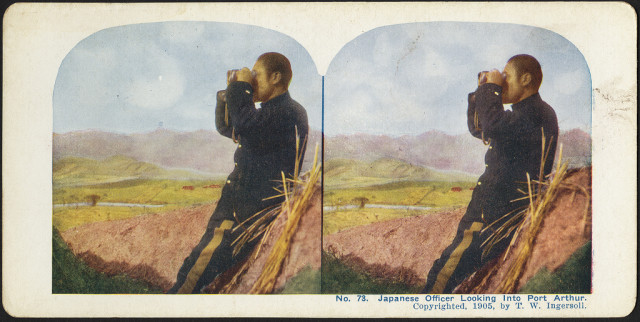
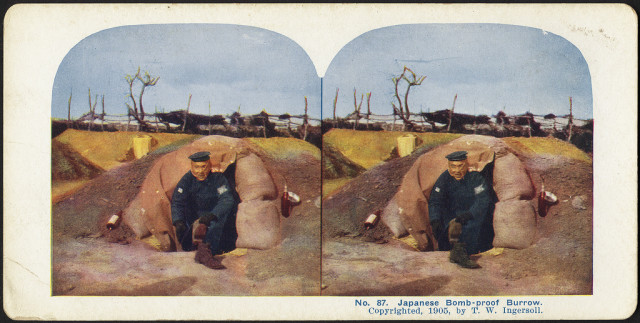
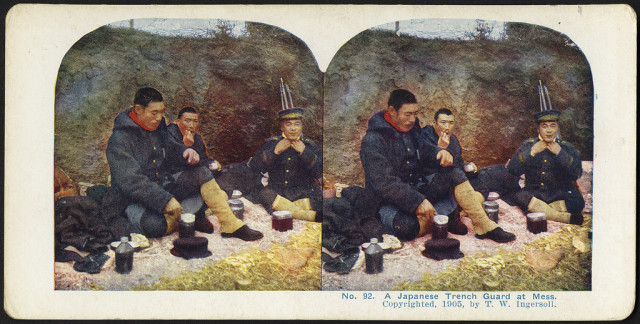
Tsarist Russia, as a major imperial power, had ambitions in the East. By the 1890’s it had extended its realm across Central Asia to Afghanistan, absorbing local states in the process. The Russian Empire stretched from Poland in the west to the Kamchatka Peninsula in the east. With its construction of the Trans-Siberian Railway to the port of Vladivostok, Russia hoped to further consolidate its influence and presence in the region. In the Tsushima incident of 1861 Russia had directly assaulted Japanese territory. Fearing Russian expansion, Japan regarded Korea (and to a lesser extent Manchuria) as a protective buffer.
All photos by Boston Public Library
